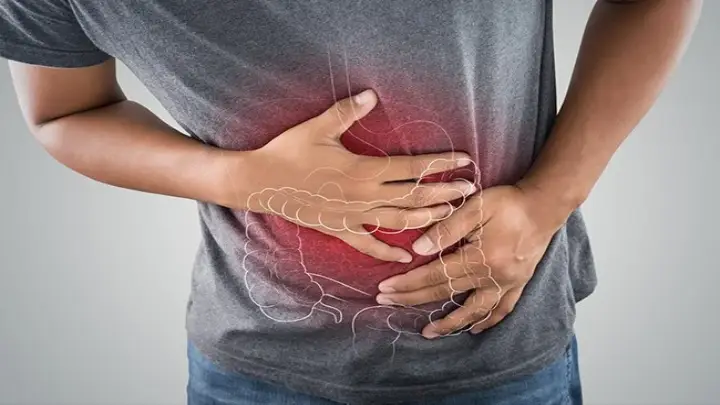The gastrointestinal system or digestive system is the vital system of human body. If you have any disorder or problem related to your digestive system, you whole body suffers the consequences. The gastrointestinal system is linked with other body systems and influence the functions of other body organs.
Many gastrointestinal problems are prevalent nowadays. There are plenty of reasons behind it. The processed food, artificial flavor, chemical additives, lack of nutrients in diet, genetic and environmental factors are some of the key points that are responsible for causing gastrointestinal problems. If you are facing any problem related to your digestive system, you can consult the best gastroenterologist in Gujranwala to get treatment.
Table of Contents
What are the Common Gastrointestinal Problems?
Most of the gastrointestinal diseases have similar symptoms. Usually gastric problems are inter-linked. Here are some of the most common gastrointestinal problems;
GERD:
When stomach contents flow into the esophagus, this condition is referred to as gastroesophageal reflux (GER). The more severe and chronic illness known as gastroesophageal reflux disease (GERD) is brought on by persistent symptoms from GER or complications that develop over time.
The common symptoms of GERD are; nausea, vomiting, heart burn, acidity, etc.
Gastric Ulcers:
Gastric ulcers are also known as stomach ulcers. They are the sores that develop on the lining of the stomach. The main causes of gastric ulcers are misuse of NSAIDs, and infection caused by H.pylori.
Some people also have ulcers in the upper part of intestine. They are known as duodenal ulcers. The common symptoms of ulcers are stomach pain, indigestion, feeling of fullness, discomfort in stomach, etc.
Chronic Constipation:
If you have chronic constipation, you are more prone to health problems. Infrequent or less bowel movements than normal, is the main sign of constipation. The main cause behind this condition is poor diet and dehydration.
People who do not take proper diet, like lack of fiber and drink less water, are prone to chronic constipation. In start, you may ignore your constipation. But if it becomes chronic, you may feel discomfort, loss of appetite, and many other digestive issues.
Irritable Bowel Syndrome:
Irritable bowel Syndrome (IBS) is one of the most common gastrointestinal disease. Your mind and mental health are the main trigger behind this condition. Stomach cramps, bloating, diarrhea and constipation are the common symptoms that usually come and go over time, or last for days, weeks or months at a time. It’s usually a lifelong health problem as it cannot be cured completely rather it can be managed with lifestyle changes and medicines.
Crohn’s Disease:
Crohn’s disease is an inflammatory bowel disease (IBD) that causes tissue swelling (inflammation) in your digestive tract, which can lead to abdominal pain, severe diarrhea, fatigue, weight loss, and malnutrition. The cause of this disease is considered as autoimmune reaction.
Stomach Cancer:
Stomach cancer is one of the top most prevalent cancers in the world. The growing cause of this type of cancer is H.pylori infection in stomach that leads to stomach cancer. The symptoms of stomach cancer are very common like any other gastrointestinal disease. But the stomach cancer is a very serious issue that has high fatality rate.
Problems with Accessory Organs of Digestive System:
Sometimes your organs that are associated with digestive system also have some serious issues. Liver, pancreas, gall bladder, spleen, are the accessory organs of digestive system. Liver diseases, like hepatitis, cirrhosis, etc. directly influence your digestive health.
Similarly, gall stones also alter your normal digestive system.
Cancers of these organs, like liver cancer, pancreatic cancer, gall bladder cancer, hepato-pancreatic duct cancer, are some of the serious types of health problems that directly influence your digestion.
How To Treat Gastrointestinal Diseases?
Different gastrointestinal issues are treated differently according to their type, stage and patient’s history.
- Stomach related problems like ulcers, GERD, acidity, are usually treated with medicines that reduce the acid production in stomach or protect the stomach lining from different factors that are responsible for promoting stomach ulcers.
- Lifestyle changes are also very critical while dealing with digestive issues. Sleep wake cycle, smoking, alcohol drinking, over-consumption of caffeine, stress levels and your diet, directly or indirectly influence your digestive problems. So having a healthy diet plan with life style changes can help in treating the gastrointestinal disorders.
- Surgical procedures are also required in conditions like gall stones, intestinal obstruction (blocking), etc.
- Some diagnostic invasive procedures like gastroscopy, colonoscopy, etc. are also helpful in treating gastrointestinal diseases.
How to Prevent Gastrointestinal Diseases?
As the digestive system is linked with your diet, one of the main factors that can help you prevent gastrointestinal diseases is, your diet.
- Maintaining hygiene can help in preventing spread of h.pylori infections
- Avoiding junk foods help preventing acidity and GERD
- Maintaining healthy sleep-wake cycle is also good for digestive health
- Managing your stress levels is also helpful in improving your digestion.
- Seeking professional’s help at right time can help in diagnosing serious gastrointestinal issues.
- Never ignore chronic diarrhea or constipation, rather get treatment for these problems.
If you are facing any health issue related to your digestive health, you can consult the best gastroenterologist in Lahore through Marham.pk for diagnosis and treatment.
FAQs
Who treats the gastrointestinal problems?
Gastroenterologists are the M.B.B.S doctors who are specialized in treating the gastrointestinal diseases and disorders. These doctors can also diagnose, treat, manage, and help preventing diseases related to digestive system.
What is the most common gastrointestinal disease?
GERD (Gastroesophageal Reflux Disease) is the most common gastrointestinal disease. It shows symptoms like heartburn, acidity, discomfort, nausea, bloating, etc.

